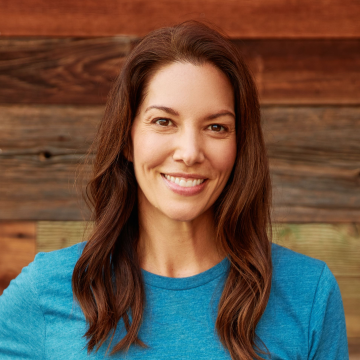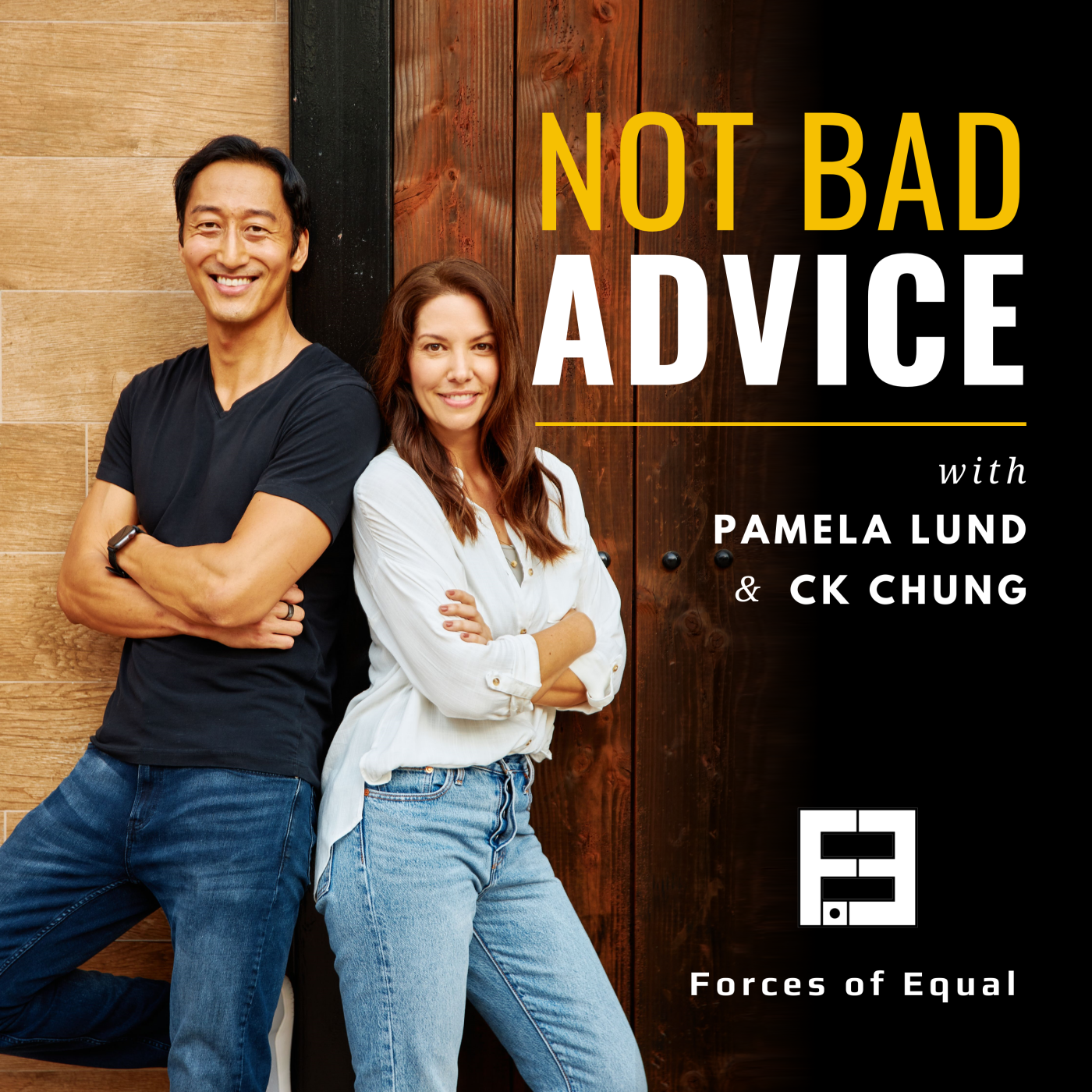Relying on willpower to do hard things to achieve big goals doesn’t work. Learn how developing the grit to be your best at your worst makes it easier to do everything, all the time.
Need advice about something? Ask us here: ForcesOfEqual.com/Advice/
Transcript
Pam: [00:00] Before we get started, just a warning: I swear in this episode. Sorry, mom.
[00:06] You’re listening to Not Bad Advice, where our goal is to offer perspective that helps you improve one aspect of your life at a time.
[00:17] I’m Pamela Lund.
CK: [00:21] And I’m CK Chung.
Pam: [00:26] And we hope that after listening you’ll think, “Hey, that’s not bad advice!”
[00:31] Willpower is bullshit. Recent research has confirmed that the way we think about motivation and willpower is completely wrong. You don’t wake up in the morning with a tank full of willpower, and you don’t inherently have more or less willpower than anyone else. You may have more or less energy on a given day, but willpower is not something that you have, or don’t have.
[01:09] Willpower is actually grit. And as we’ve talked about in the last three episodes, you can train yourself to have more grit. I love this perspective because relying on willpower makes it seem like you’re helpless and at the mercy of this mythical superpower that successful people have. But training your level of grit puts you back in control.
CK: [01:36] So far, we’ve discussed three of the six types of grit that human performance expert Steven Kotler says you need to perform at your highest level. The three we’ve covered are: the grit to recover, the grit to master your fears, and the grit to train your weakness.
[01:55] Those three types of grit are necessary to make sure that you can do the things you want to do. The remaining three types of grit are what are needed to make sure you do do the things you want to do. And they all enhance what we think of as Willpower.
[02:10] Willpower’s basic definition is, “control exerted to do something, or to restrain impulses. It’s also what we think of as the thing that allows people to do hard things or things they might not want to do, but know they should, like exercising or eating right.
[02:29] And lack of willpower gets blamed when people don’t achieve their goals. For example, if you want to write a book, but don’t write every day, you might blame a lack of willpower for why you don’t write. But, as Pam said, pointing the finger at willpower takes away your control in the situation.
Pam: [02:46] Right. And when you’re not in control of your actions, you feel helpless, but you’ll also feel like a loser because we’ve made willpower a virtue. We shame people who don’t appear to have it.
[02:59] But the reality is we’ve all just had different levels of grit training so far, which means you can take small steps every day to get more of what we call willpower. And the more so-called willpower that you have, the easier it will be to achieve your big goals. And honestly, the easier life in general becomes because it will be easier to just do the things that have to get done rather than procrastinating or ignoring them until it’s too late.
[03:29] Steven Kotler calls this “the grit to train your pain,” which sounds really unpleasant, but it’s not as bad as it sounds. The idea is that you need to practice doing things when you really do not feel like doing them. So you’re better at them and more likely to do them the rest of the time.
[03:48] I’m going to keep using the example of someone who wants to write a book like we’ve done in other grit episodes, but you can apply this tactic to anything you want to accomplish.
[03:57] If you want to write a book, you have to develop the habit of writing every day. You will not feel like writing most days and we’ll find a million other things to do instead. When I need to sit down to write these episodes, suddenly it becomes very important that I do all of the laundry instead. That is just how writing is.
[04:17] There are a lot of things that you can do to make yourself more likely to write, like building the habit of writing using techniques from Atomic Habits by James clear, but ultimately, you do have to decide to actually write. And that’s where training your pain comes in.
[04:33] Rather than trying to develop the so-called willpower to write every day when you just sort of don’t feel like it, practice writing once a week when you really don’t feel like it. When you’re tired feeling uninspired and just have absolutely no motivation to write, that is exactly when you need to make yourself write.
[04:55] A great time to practice this is at the end of the workday when you’re spent and just sort of want to veg out. Take 30 minutes to write or do whatever your thing is that you’re trying to accomplish. When you do that, you make it easier to do your thing at other times because you’ve done it when you least felt like it.
CK: [05:16] You can think of this like weight training. If you train with heavy weight periodically, it becomes easier to lift moderate weight daily. By training yourself to do something when you really don’t want to do it, you make it easier to do it the rest of the time.
[05:33] You can also use this technique to get better at things like public speaking. If you practice giving your talk, when you’re tired, you’ll be better at giving it when you aren’t, because you’ll have experience doing it in a depleted state.
[05:46] Obviously there’s the caveat here that you don’t want to push yourself to exhaustion in the name of developing grit. That’s why the grit to recover, which we discussed previously is also important. The idea here is that you only train your pain periodically to gradually increase your mental set point for difficult things.
Pam: [06:06] And over time, you’ll notice that it becomes easier to do things that you would have procrastinated on or avoid it entirely, because you will have shifted the level of difficulty that your brain perceives when you need to do them.
[06:18] You’ll have built up grit and resilience from pushing yourself a little harder when you didn’t want to, so everything will feel easier the rest of the time.
[06:27] If you found yourself thinking, “Hey, that’s not bad advice,” while listening today, we’d love it if you shared the episode with your friends and rated it in iTunes.
[06:38] You can get in touch with us on Twitter, where I’m @Pamela_Lund and CK is @cKdisco.
[06:45] To find us on other platforms, visit ForcesOfEqual.com/Advice. There, you can also contact us if there’s something you need advice about. We’d love to hear from you.






